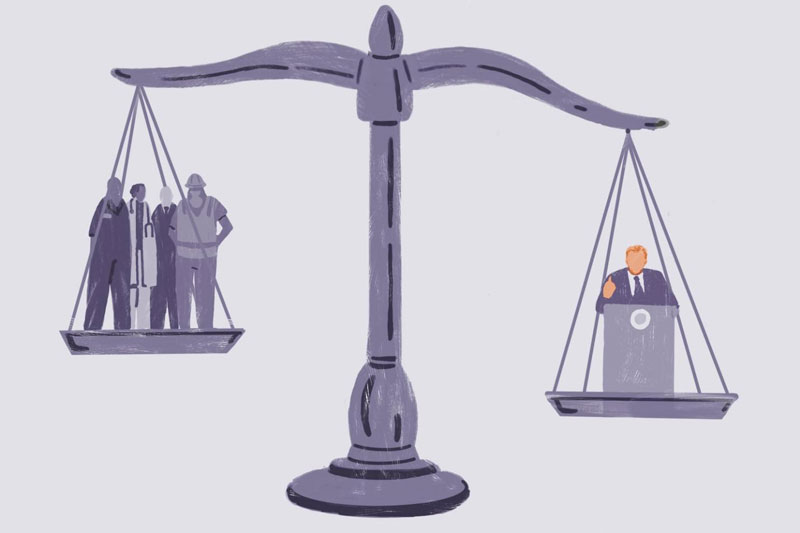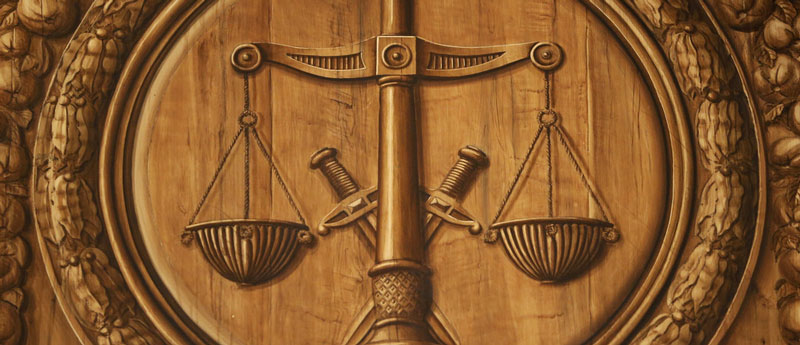Several protocols are in place to ensure that mistakes don't happen, that bad conduct doesn't take place, and that power doesn't get too concentrated. Checks and balances guarantee that no person or department has complete control over choices, clearly identify the assigned responsibilities, and force collaboration in completing tasks. They are typically used. Usually, the word relates to restricting government authority, although it may also apply to corporations and organizations.
How the System of Checks and Balances Operates
The legislative, executive, and judicial branches carry out checks and balances via the three branches of the U.S. government. The federal and state constitutions bind it to the ideas and activities that a constitutionally restricted government permits.
Businesses and organizations where a single person may make choices that impact operations need checks and balances. Even though checks and balances may cost more money, they can be crucial to catching internal and external theft.
Businesses and organizations can better prevent rogue employees or executives from harming a corporation without the help of other employees by clearly defining their roles. There are several benefits to having these kinds of internal controls in a corporation.
Sense and Sensibility

The authors of the Constitution envisioned a three-tiered system when they drafted the Constitution in 1787, and they considered that the government's legislative, executive and judicial departments should be separated.
A unique set of powers would be granted to every component of the government: the legislative branch would draught legislation, the executive branch would carry it out, and the judiciary would interpret it. So that no one branch would grow overly dominant, this was done.
As the term implies, this division of responsibilities and authority is known as the "separation of powers" principle. Some of the capabilities each branch has ensured that the other branches don't misuse their power (checks).
The Global Economy: A System of Countervailing Forces
There are six UN institutions: the International Court of Justice, the General Assembly, the Economic and Social Council, the UN Secretariat, the Security Council, and the UN Secretariat. International courts, policy assessment, and recommendations on economics, social and environmental concerns are only some of these organizations' roles.
They can't affect each other, nor can the people working in these bodies. Because of the UN's worldwide reach and the fact that it affects the vast majority of countries, separate entities must handle the various directives to prevent a concentration of power.
An Illustration of the Checks and Balances System

The three parts of the U.S. government, the legislative, executive, and judicial, are separated by the U.S. Constitution, which provides checks and balances for the government. Each of the three branches of government is given a certain set of powers under the Constitution to guarantee that no one sector of the government has too much authority.
U.S. government checks and balances are implemented in the following ways. In the first place, the executive branch delegated veto power to the president to maintain a lid on the legislative branch, which is where laws are drafted. Some laws are declared unconstitutional by the judiciary, a government body responsible for interpreting legislation passed by both houses of Congress.
Additionally, a two-thirds "supermajority" vote by both houses of Congress is required to reverse a veto by the executive branch.
Orders issued by the Executive Branch.
Even though they may not be lawful, executive orders are frequently issued to benefit the country. To provide one example, on April 19, 2016, President Obama issued an executive order barring entrance to the United States for anybody who was suspected of contributing to the present state of affairs in Libya.
In this case, the judicial branch remained steadfast in its support of the president. To free up billions for a proposed border wall, President Trump proclaimed a national emergency on February 15, 2019, to get the expenditure authorized by Congress after all other avenues of financing had failed.
What Does the U.S. Government Mean by "Checks and Balances"?
Three government departments are established in the United States: the executive, the judiciary, and the legislative. The term "checks and balances" alludes to this division of authority. Branches can check each other's authority since each has a separate set of responsibilities.
Who Discovered the Principle of Checks and Balances?
Polybius, a Greek statesman, was the first to advocate for a system of checks and balances in ancient Rome's government. Baron de Montesquieu, a French philosopher of the Age of Enlightenment, said in The Spirit of Laws that the division of powers was necessary to avoid dictatorship.
What Is the Global Economic Effect of the Checks and Balances System?
Several global organizations, including NATO, the UN, the World Trade Organization (WTO), and the International Criminal Court (ICC), aim to check the power of other nations and institutions. These organizations all strive to check the authority of other nations and institutions.

Understanding Nonforfeiture Clauses: A Simple Guide to 4 Payout Options

A Beginner's Guide to Pivot Points in Trading

Exploring Financing Entities: Balancing Opportunities and Risks

What Is the Purpose of Checks and Balances?

7 Mistakes To Avoid When Getting A Used Car

Currency Valuation 101: What Really Affects Exchange Rates

NorthOne Business Banking Review 2024: Simplified and Effective Solutions

Unlocking the Secrets of Travel Insurance: How It Works and Why You Need It

Everything You Need To Know About How Do Certificates Of Deposit (CDs) Help Build Credit

2024 Showdown: OneUp Trader vs TopStepTrader for Funded Trading Accounts

Three Steps for Dealing with Significant Medical Bills
